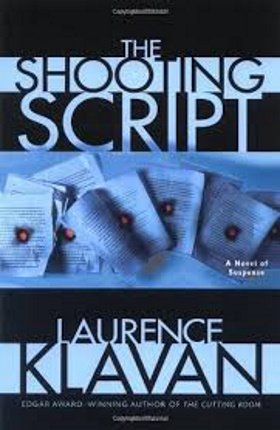“Do you have money?” I asked, heatedly. “Give me the money you have.”
Katie just looked at me, thrown. Then her confusion turned, ever so slowly, to fear. “What’s the matter, Roy?”
What could I tell her? That, in different disguises, her boyfriend had been tailing me through three states and two continents? That I—and most likely she—had no idea who he really was?
I decided to skip specifics. My voice grew calm. I didn’t like leaving Katie. But she, after all, had made her own bed.
“I need money to get home.”
Even though she didn’t understand, my tone made Katie nod. She quickly pulled a leather bag from the seat beside her.
“It has to be Johnny’s, okay? I didn’t bring any.” Then she rifled through his stuff, bringing out a surprising number of American and Dutch bills and several handfuls of change. I jammed it all into my front and back pockets.
The train was slowing down. I looked out the door and saw Johnny limping determinedly down the aisle, heading our way. It seemed like a good time to get off.
“Look,” I said. “Why don’t you come with me? Get away from him?”
The idea seemed to interest, excite, and disturb Katie. She was, of course, a big fan of taking risks. But not the kind involved in leaving Johnny. I could see it in the way she shook her head.
“See you around then,” I said.
This time, she nodded. The train came to a halt.
—
I stood on the platform, hidden among people, as the train pulled out again. I saw Johnny furiously scan the crowd for me from our compartment window. Appropriately, in the filtered glass, his features were almost indistinguishable.

JOHNNY’S MONEY PAID FOR MY FLIGHT HOME.
I rode business class, to take advantage of his largesse. I read a free Wall Street Journal and actually found its entertainment page. There was one story of interest:
STUDIO BETS MILLIONS ON A QUIRKY “QUELMAN”
Alan Boilerman, maker of acclaimed whimsical indie films about dysfunctional familes, has been handed his biggest studio assignment yet. It’s a huge, multipart adaptation of the beloved cult dodeca-ology, The Seven Ordeals of Quelman. Boilerman plans to bring his trademark loony comic style to the project, adding and altering many elements of the fantasy. So far, he’s received only thumbs-up from fan Web sites.…
No stalking or attacks for glamorous young directors, I thought. I almost felt sorry for Abner. Almost. I figured out how to fold the paper this time, and left it, in a tidy pile, on my seat.
Dena was staying on the water again.
This time, her house was only an apartment. It was located up a rickety exterior staircase that was attached to a bait store. It sat half a mile from the tacky main street of Bar Harbor, Maine, where T-shirts, kayak rentals, and lobster tchotchkes ruled. Still, the Sound was basically in her backyard, and it smelled better than an Amsterdam canal.
And she was glad to see me.
“I was worried,” she said.
I was glad to see her, too. The red streak in her hair was now green. Otherwise, she looked the same, maybe a little thinner from anxiety. She wore a SpongeBob T-shirt over pants to a grandmother’s suit.
Her father’s one-bedroom had essentially been cleaned out. Only a few packed boxes remained, plus a mattress, a lamp, and a clock radio, all on the floor.
“I’m almost done here,” she said. “They start showing it next week.”
“And then you go back … where?” I realized I never knew where Dena lived, before she worked for Howie.
“I’ve sublet my place in Brooklyn,” she said. “But I’ll … I’ll figure it out.”
Never one for sentiment or disorder, she wouldn’t be more expansive. Still, I could tell that uncertainty was weighing on her. And I only had more to offer.
“So this Johnny Cooper was the guy who’s been following you? The other guy who got to my father’s hotel before you?” she said, after I explained.
“Right. And this time he almost had me, too.”
“How did he always know where you were?”
“Beats me.” I stayed away from speculation. I was too wiped out from the long flight home.
“Do you think he thought my father’s tape was Clown? And that’s why he stole it from you?”
I smiled at her using the film’s trivial nickname now. “I guess. And maybe he stashed it with Graus for safekeeping. He didn’t know Graus would want to see some ‘entertainment’ with his maid friend.”
“Maybe.” Dena wasn’t so sure.
“Sorry I lost it. I mean, you … you might have wanted more of your father’s pictures of you. This time, in motion.”
She shrugged, dismissing the letdown. “I’ve got enough.”
There was a pause, as both of us slowly saw the dead end we had reached. I considered Johnny’s cash in my pocket. I knew I should hold on to it, for my mother, and for anything else I might need. It was basically all I had. But, looking at Dena’s weary face, I knew there were all kinds of responsibilities.

























